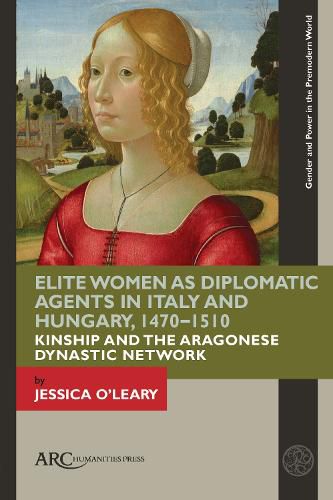Readings Newsletter
Become a Readings Member to make your shopping experience even easier.
Sign in or sign up for free!
You’re not far away from qualifying for FREE standard shipping within Australia
You’ve qualified for FREE standard shipping within Australia
The cart is loading…






This book explores the diplomatic role of women in early modern European dynastic networks through the study of Aragonese marriage alliances in late fifteenth-century Italy and Hungary. It challenges the frequent erasure of dynastic wives from diplomatic and political narratives to show how elite women were diplomatically active agents for two dynasties.
Chapters analyze the lives of Eleonora (1450-1493) and Beatrice d'Aragona (1457-1508), daughters of King Ferrante of Naples (1423-1494), and how they negotiated their natal and marital relationships to achieve diplomatic outcomes. While Ferrante expected his daughters to follow paternal imperatives and to remain engaged in collective dynastic strategy, the extent of his kinswomen’s continued participation in familial projects was dependent on the nature of their marital relationships. The book traces the access to these relationships that enabled courtly women to re-enter the diplomatic space after marriage, not as objects, but as agents, with their own strategies, politics, and schemes.
$9.00 standard shipping within Australia
FREE standard shipping within Australia for orders over $100.00
Express & International shipping calculated at checkout
This book explores the diplomatic role of women in early modern European dynastic networks through the study of Aragonese marriage alliances in late fifteenth-century Italy and Hungary. It challenges the frequent erasure of dynastic wives from diplomatic and political narratives to show how elite women were diplomatically active agents for two dynasties.
Chapters analyze the lives of Eleonora (1450-1493) and Beatrice d'Aragona (1457-1508), daughters of King Ferrante of Naples (1423-1494), and how they negotiated their natal and marital relationships to achieve diplomatic outcomes. While Ferrante expected his daughters to follow paternal imperatives and to remain engaged in collective dynastic strategy, the extent of his kinswomen’s continued participation in familial projects was dependent on the nature of their marital relationships. The book traces the access to these relationships that enabled courtly women to re-enter the diplomatic space after marriage, not as objects, but as agents, with their own strategies, politics, and schemes.